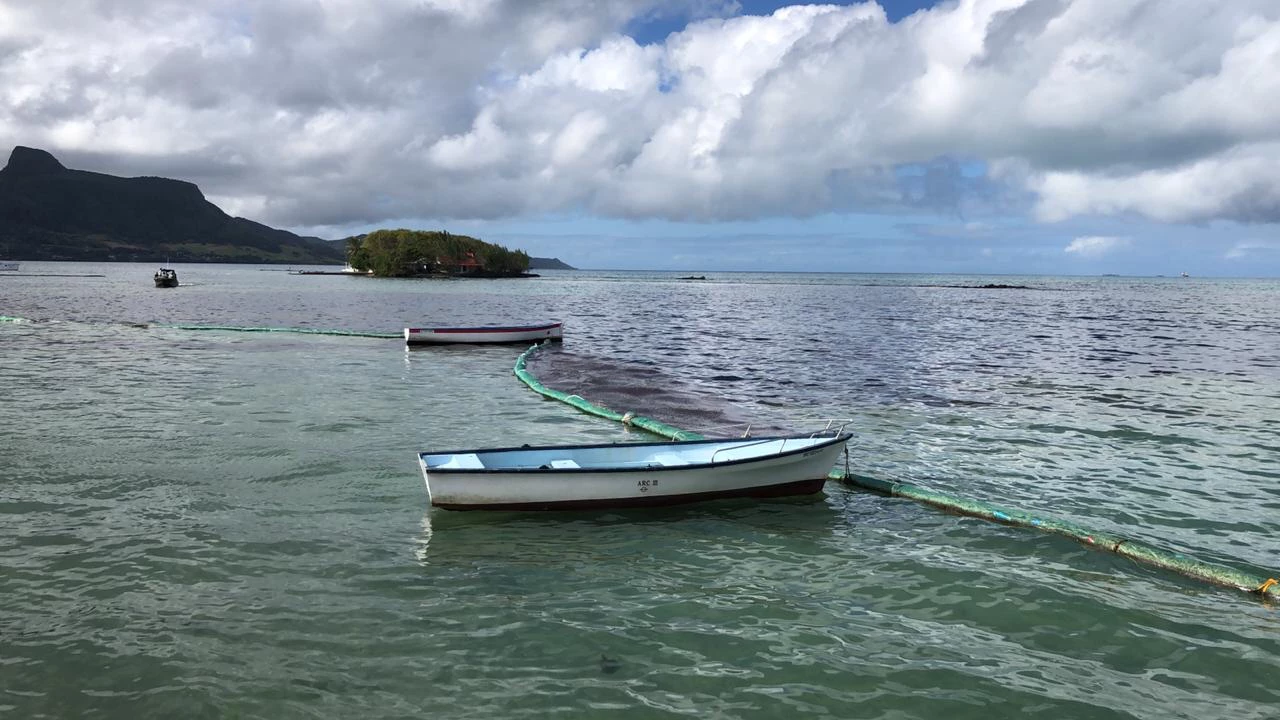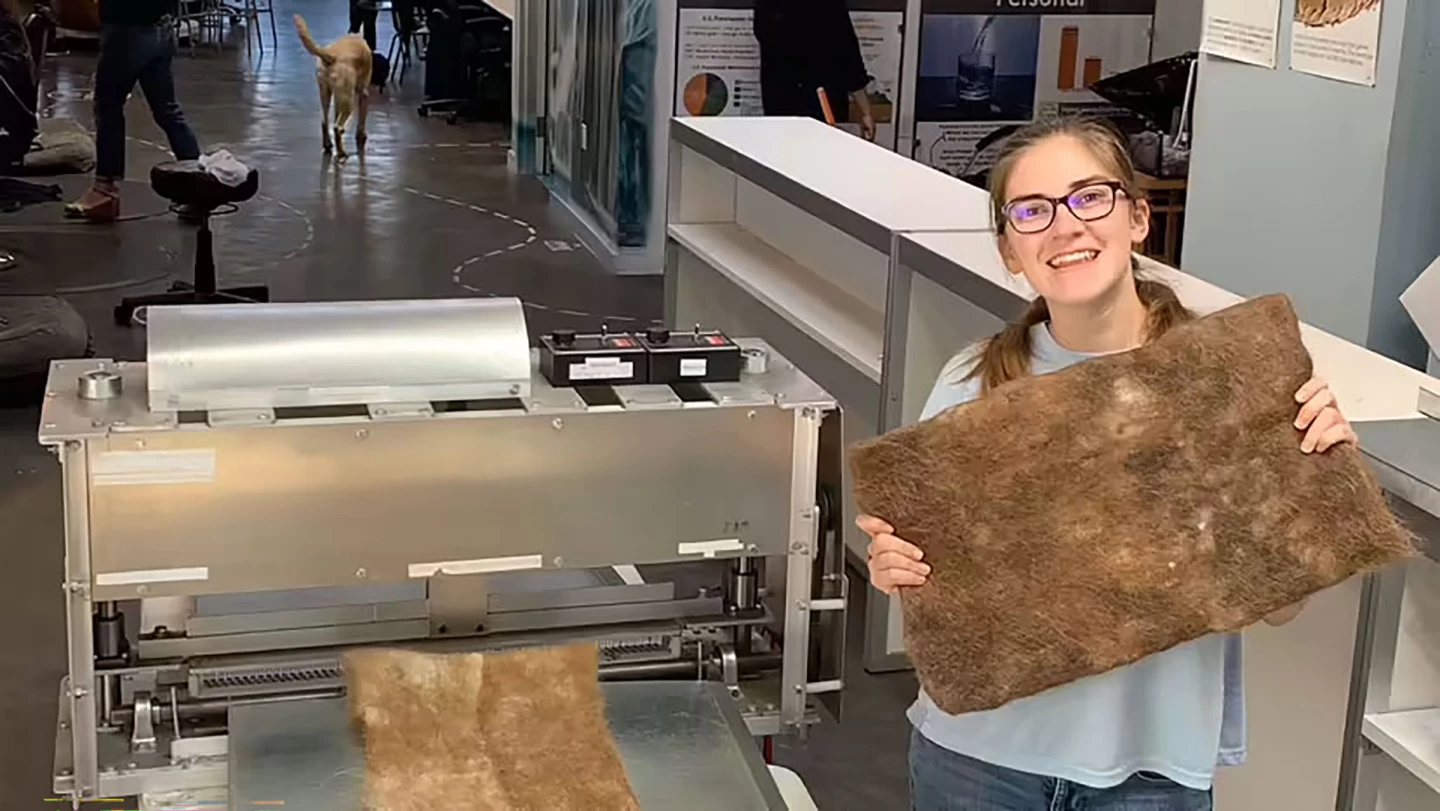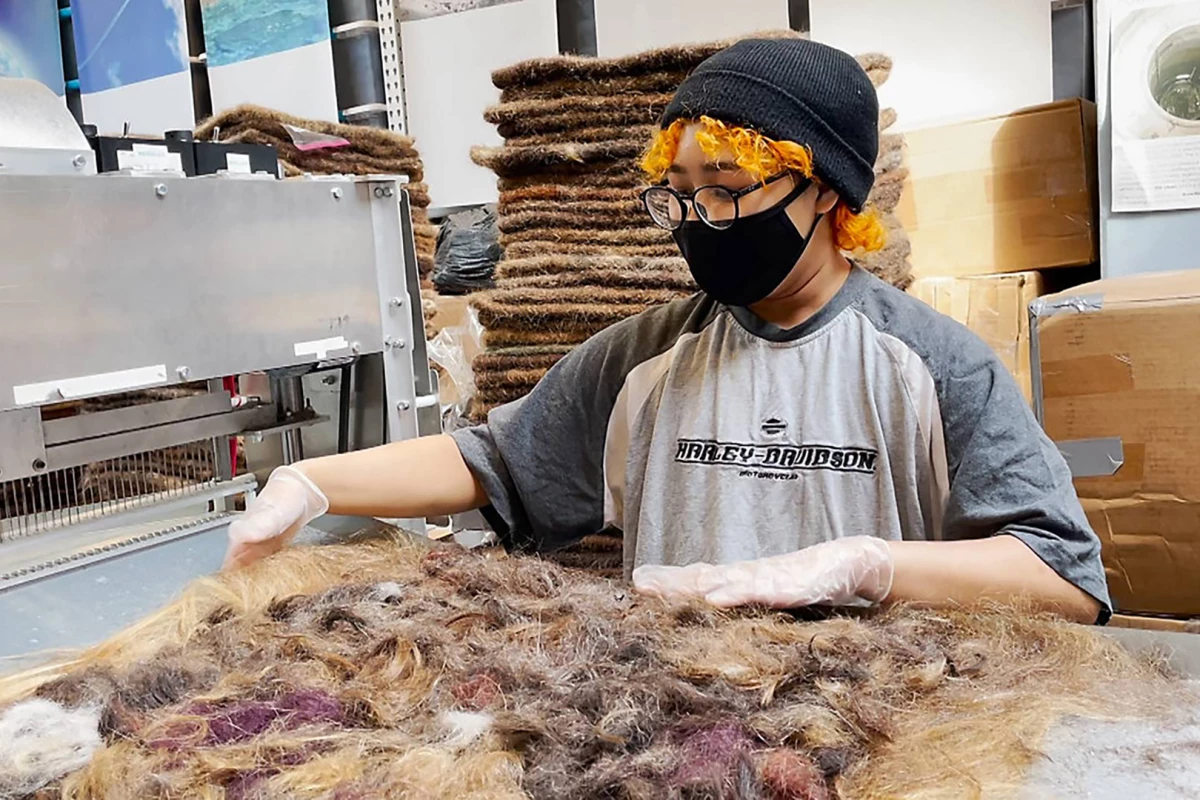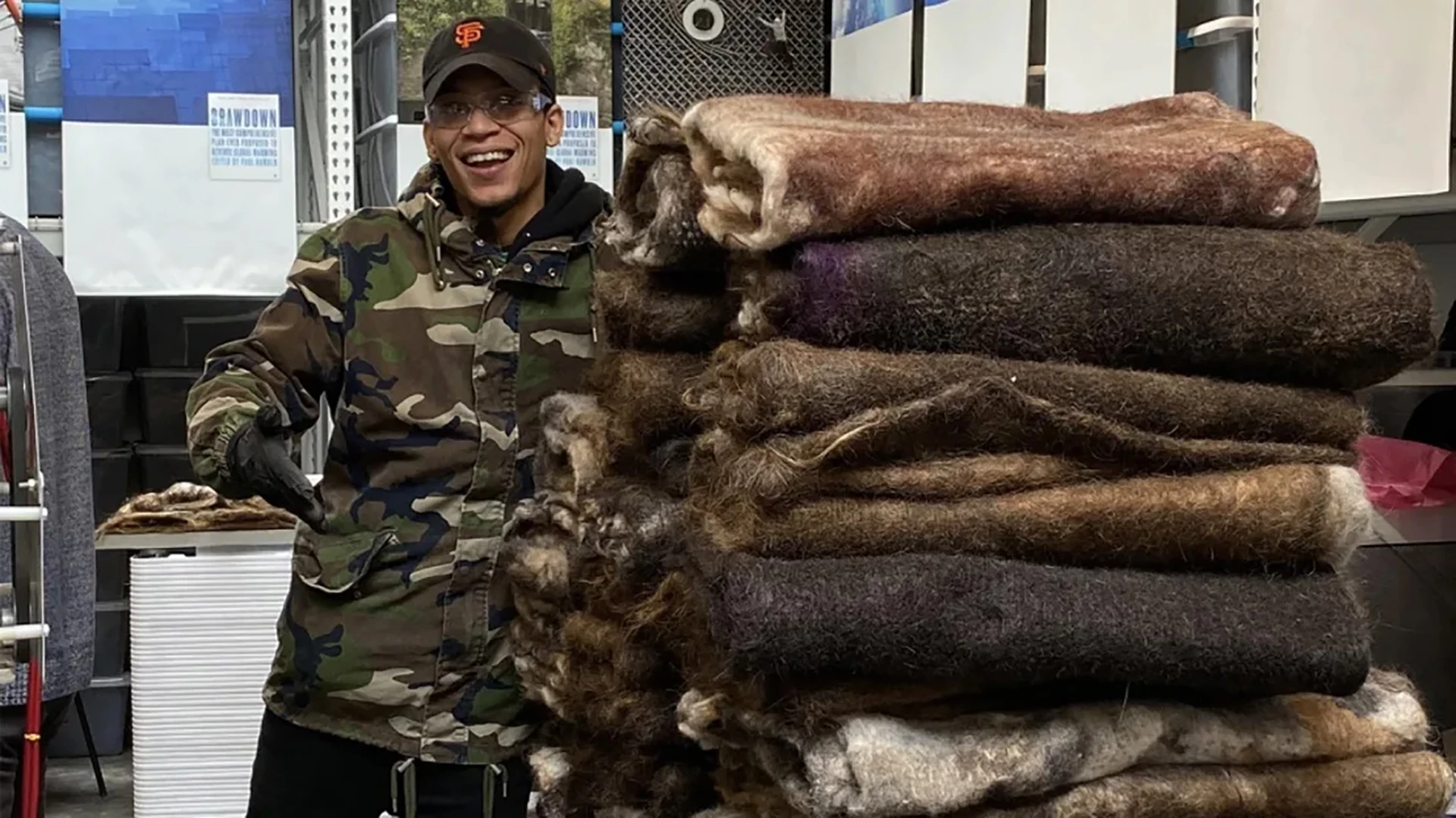Lisa Gautier and her partner Patrice Gautier founded Matter of Trust in 1998 with the hopes of being able to tackle environmental issues. They soon met up with Phillip McCrory, a hair-dresser from Alabama, who had the idea for hair mats being a useful tool for oily-cleanup when he'd seen an otter being rescued from the Exxon Valdez spill in Alaska with its fur matted in oil.
McCrory tested his theory at home with 5lbs of hair from his salon stuffed into his wife's pantyhose and a kiddie pool in his backyard. A million-dollar idea was born. Hair has a unique ability to adsorb – rather than absorb – oil. When hair comes into contact with oil, the oil molecules stick to the surface of the hair, making a film that holds fast. Just a dip will do it!

Three years later, the idea was proven at scale when an oil tanker ran aground in the Galapagos Islands. Matter of Trust was able to aid in the cleanup with their felted hair mats.

It takes just 1.1 lbs (500 grams) of hair to create a two-foot square, one-inch thick (60x60x2.5cm) mat, which can soak up roughly 1.5 gallons (5.6 liters) of oil. With nearly a million licensed hair salons in the US that can produce around a pound of hair waste per day, there's no shortage of materials. In fact, most of the company's materials come donated from barber shops and salons. "I can always tell when we get a package from L.A. – blonde blonde blonde!", Lisa Jokes. Matter of Trust has received donations from EVERY zip code in the United States.
It isn't just human hair; the team also uses other waste fibers like fleece, pet hair, and even laundry lint from your dryer. They've developed their own felting machine specifically to make the square two-by-two foot mats.

Matter of Trust has now felted over 300,000 oil cleanup booms, and over 40,000 hair mats for major disaster projects, including the Deepwater Horizon oil spill in the Gulf of Mexico in 2010. According to Gautier, roughly half of its inventory is purchased by organizations such as the US Department of Defense while the other half is donated – typically to volunteers. If just a single quart (approx 1 liter) of oil were to enter a water supply, it could potentially contaminate up to a million gallons (3.8 million liters) of drinking water.
The standard method for cleaning oil spills on sea or land is with polypropylene booms, however, polypropylene is a non-biodegradable plastic that ends up in landfills. Mind you, the hair mats aren't the perfect solution themselves as it stands. The only ways to dispose of them are to compost or incinerate them. Both options have their own problems – but the team is working to figure out how to extract the oils from the hair and make the mats reusable. A healthy lather, rinse, repeat might be the solution?
Take a peek at Matter of Trust's video explaining exactly how and what they do and then decide how grossed out you are...or aren't!
Source: Matter of Trust









